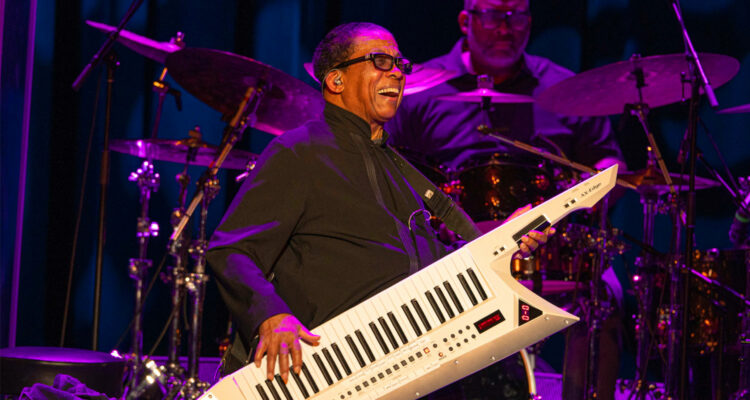Before launching into a two-hour-plus set with his band Tuesday night, Chicago jazz legend Herbie Hancock spent several minutes addressing the sold-out Pabst Theater crowd. “The first really professional gig that I played was not in Chicago—it was here in Milwaukee,” he said. “Donald Byrd caught me in Chicago and brought me up here.” He then told his bandmates they could sit down for a minute, as he regaled the crowd with tales of Curro’s, the downtown club where he got his big break in 1960. It’s oft-repeated lore in local jazz circles, maybe just a footnote in the grand scheme of the career of one of music’s all-time greats, but there’s always a chance such a tidbit will inspire a younger musician in the crowd. “I got a connection with you,” said Hancock, and the crowd eagerly reflected that sentiment right back at him.
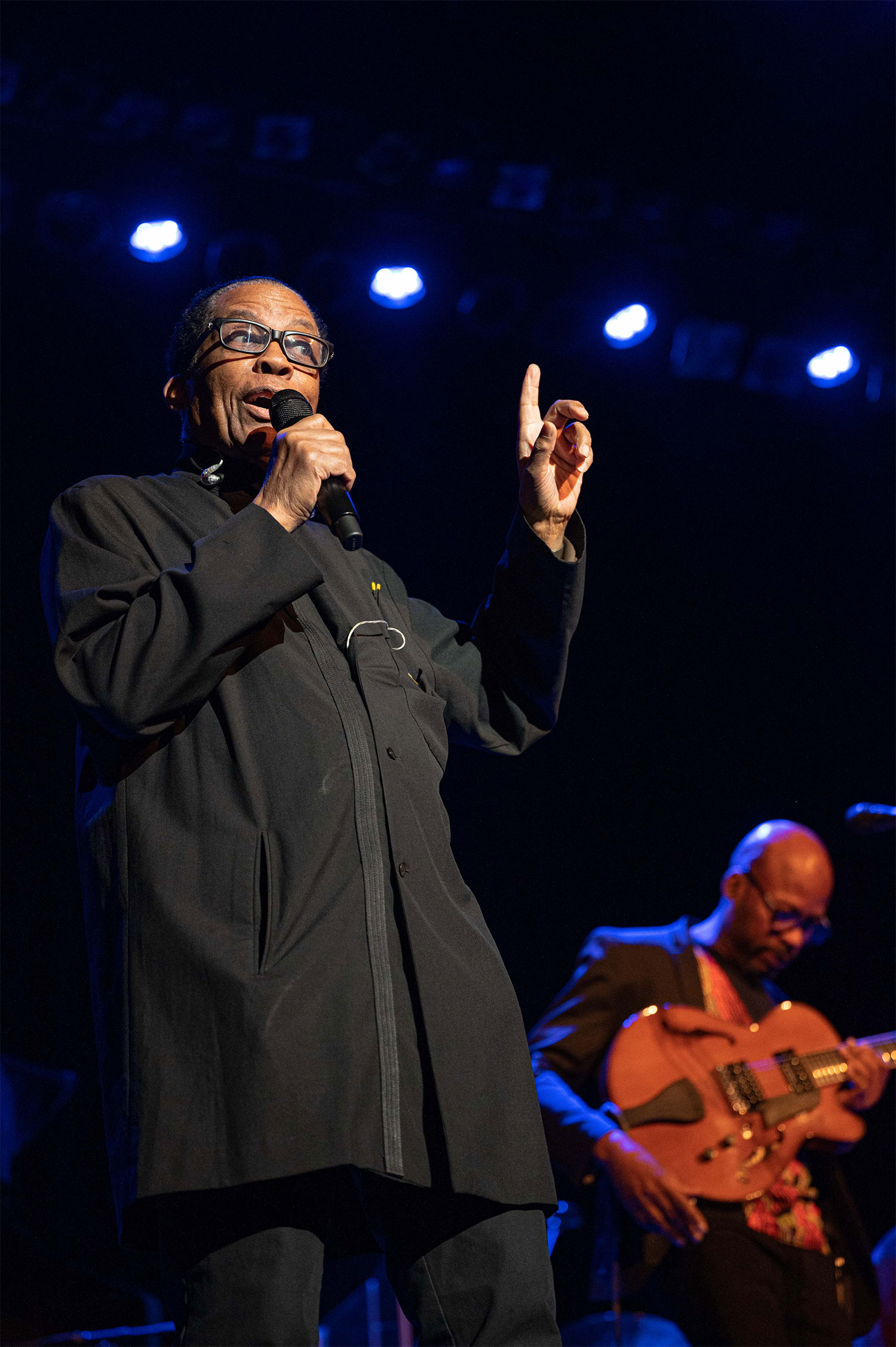
As has been tradition since pre-pandemic days, Hancock and his band began their performance with a loose string of song snippets that they refer to as “Overture,” less a medley of melodies than a lengthy series of improvisations. Acknowledging that he simply has too many songs to please everybody, Hancock still wasn’t exactly playing the hits for a casual crowd; the “Overture” served as a showcase for the individual talents of a band that spanned several generations (as well as an opportunity for diehard fans to play name-that-tune). The only holdover from his previous Milwaukee visit in 2017 was bassist James Genus, on loan once again from the Saturday Night Live Band, so while the actual setlist was almost identical, it was a very different show.
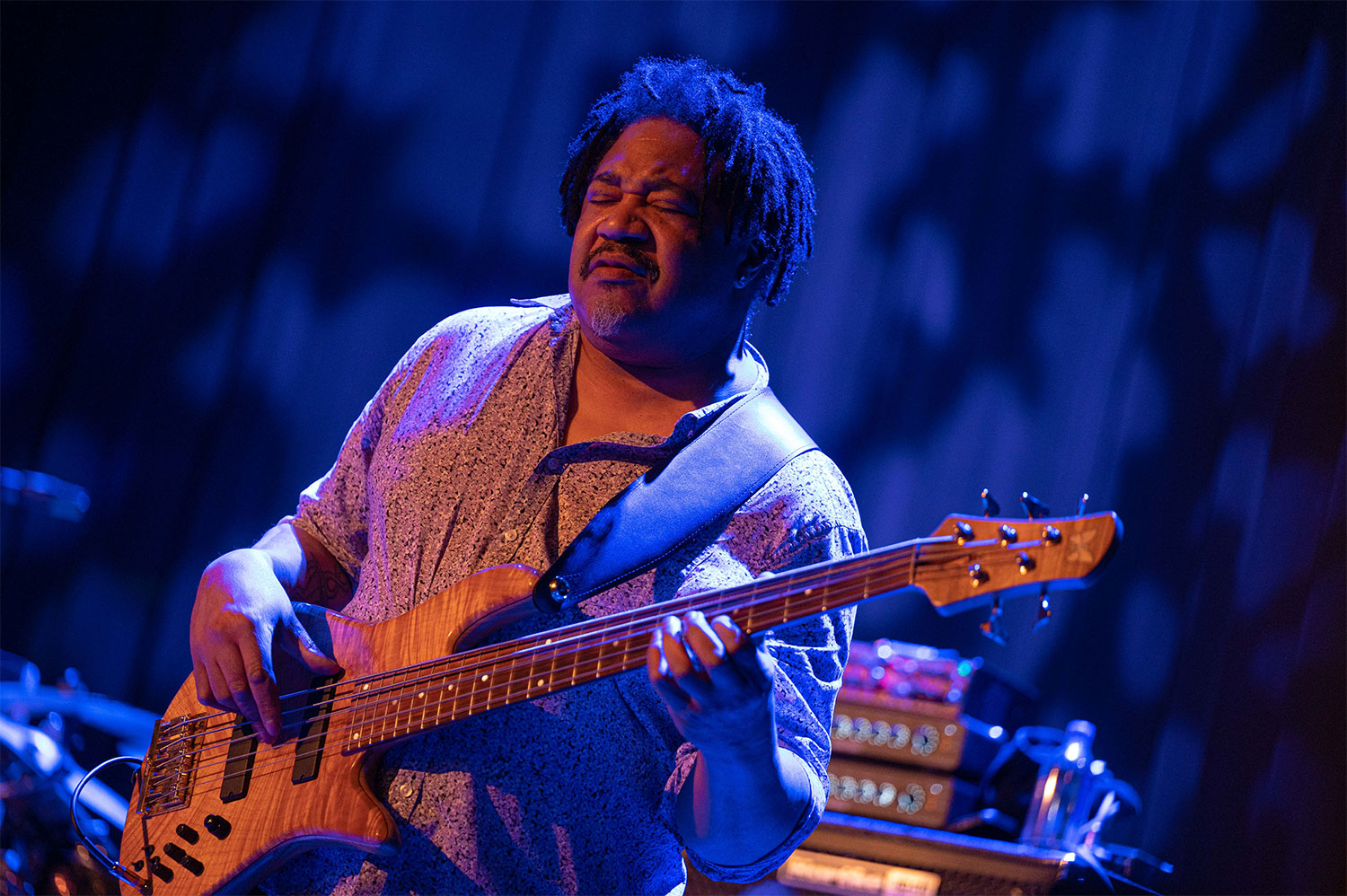
Guitarist Lionel Loueke took the spotlight toward the end of the sprawling “Overture,” crafting sparse loops over an irregular beat that nevertheless inspired a few intrepid audience members to participate with some misguided rhythmic clapping. Hancock, sitting at the piano, was in stitches over this, even taking control of the clapping himself for a couple minutes, laughing all the while as Loueke somehow stayed the course clinically. He’d break out of his shell later on with a dazzling solo in “Actual Proof,” a Moog-like effect on his guitar tone transporting us directly into a circa-1977 Keith Emerson headspace for a few minutes.
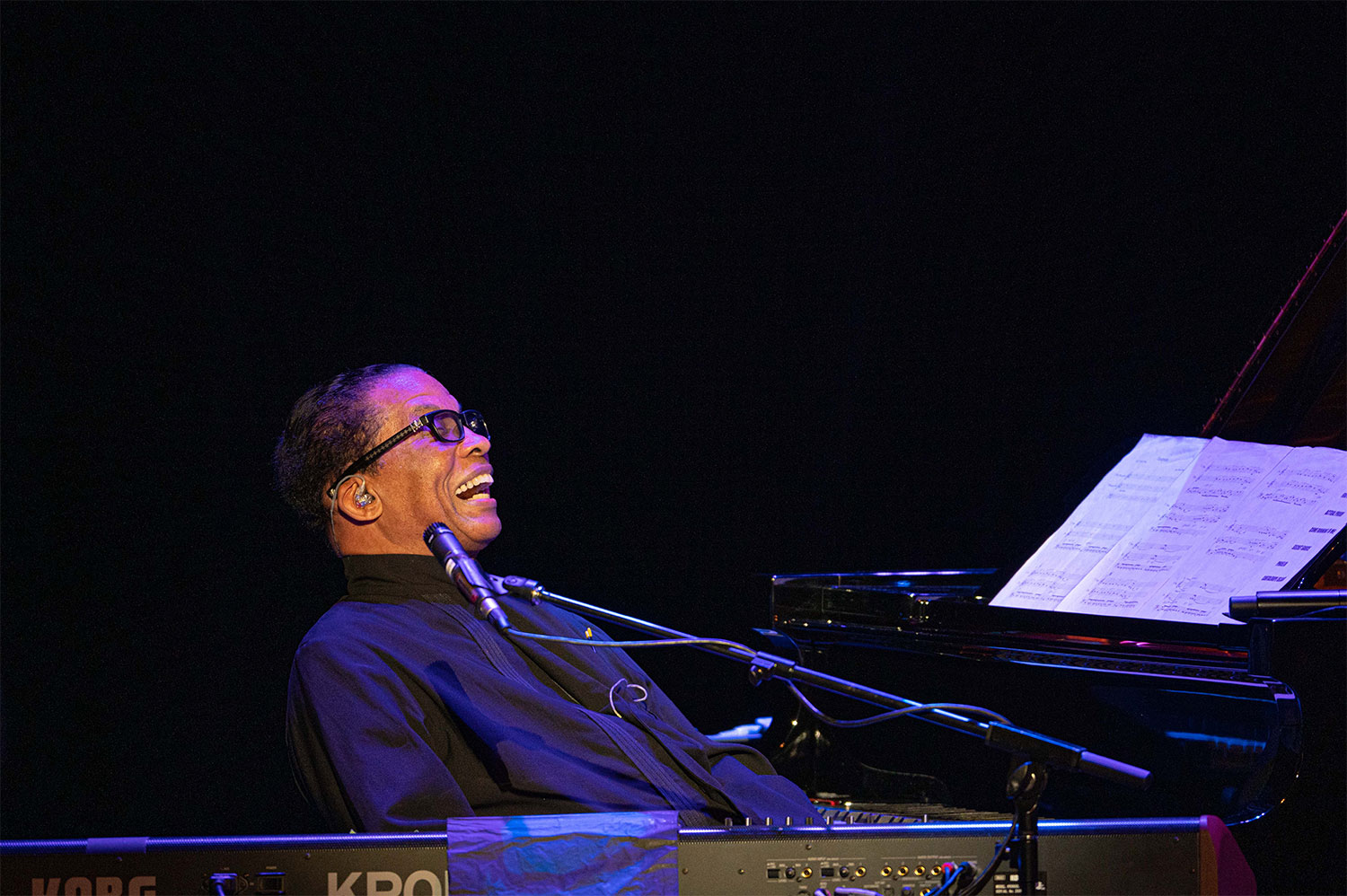
“Actual Proof,” the third song of the night, didn’t begin until an hour into the performance, following an epic take on “Footsteps” in tribute to Hancock’s former bandmate Wayne Shorter, who passed away last year. While the maestro hopped between the grand piano and his Korg keyboard, the band took the crowd on a dynamic journey both through individual solos and group interplay, finding occasional grooves to get caught up in—although after a reprise of the main theme they went into a rather sluggish outro jam that dragged a bit. The band as a whole wasn’t as tight as the more seasoned quartet Hancock had last visited Milwaukee with; the fact that this hodgepodge of mainstays and relative newcomers could achieve group synergy at all was rather remarkable.
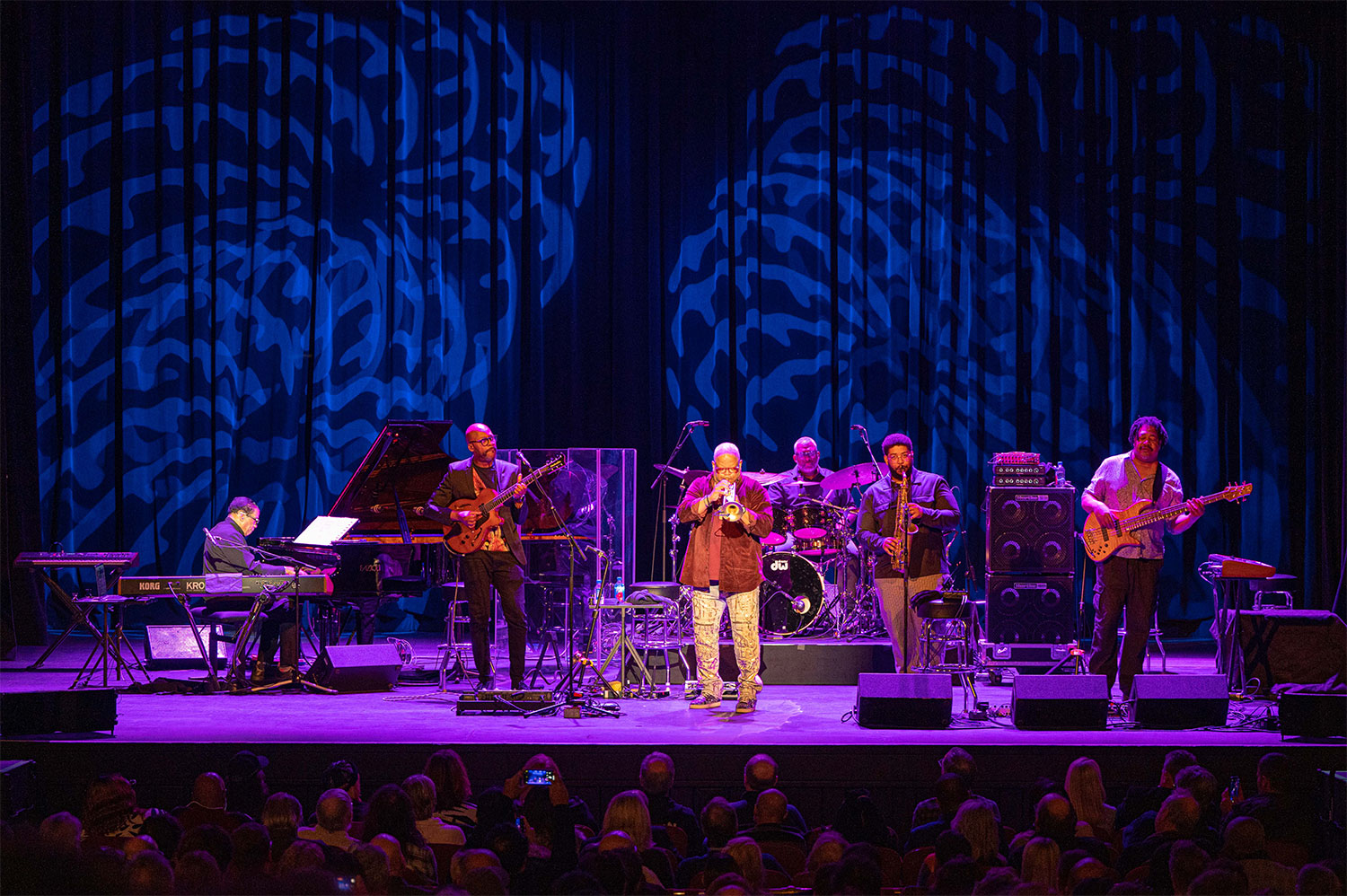
Hancock’s current horn tandem consists of veteran trumpeter Terence Blanchard and Devin Daniels on alto sax, the youngest member of the group and currently a masters student at Hancock’s Institute of Jazz Performance at UCLA. Neither player was particularly showy; both utilized electronic effects to varying degrees, favoring thoughtful, judicious solos rather than flurries of notes, telling stories rather than blaring at us. Hancock himself was more playful and talkative this time around as well, though he certainly hasn’t lost his touch at the keys. Although this ensemble may not have enough miles under its collective belt to have gelled as a unit, Hancock’s rapport with drummer Trevor Lawrence Jr. was apparent right away; the two seemed psychically linked at times during heights of improv. “Sometimes I get lost,” Hancock said during the band introductions, “but Trevor always knows where it is.”
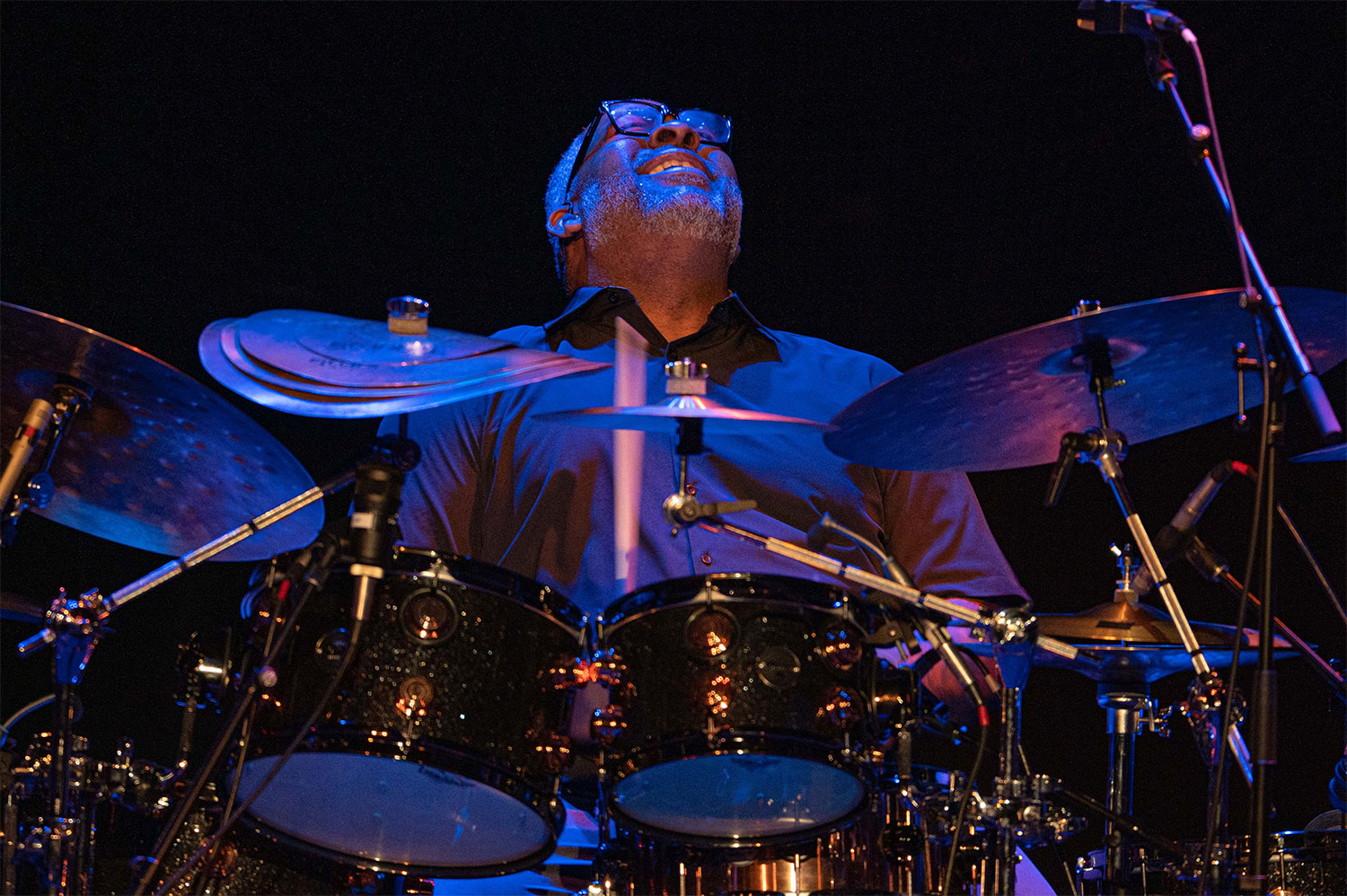
Another longstanding Hancock tradition is use of the vocoder, which yielded a lengthy solo ramble in the middle of “Come Running To Me” (off 1978’s Sunlight LP). It was funny and touching as Hancock reacted to the boisterous but not obnoxious crowd. The harmonious spoke-sung diatribe led to the iconic question: “How many families are there on the planet?” You can probably guess the answer.
Hancock finally busted out the keytar during “Secret Sauce,” a song he’s been playing for many years now that hasn’t made its way onto a studio recording yet. It was a more natural fit in the set this time around, benefiting greatly from Loueke’s guitar wizardry. Herbie will be turning 84 in less than two weeks, yet he still had it in him to bounce up and down gleefully while battling Loueke in a delightful duel during set-closer “Chameleon.”
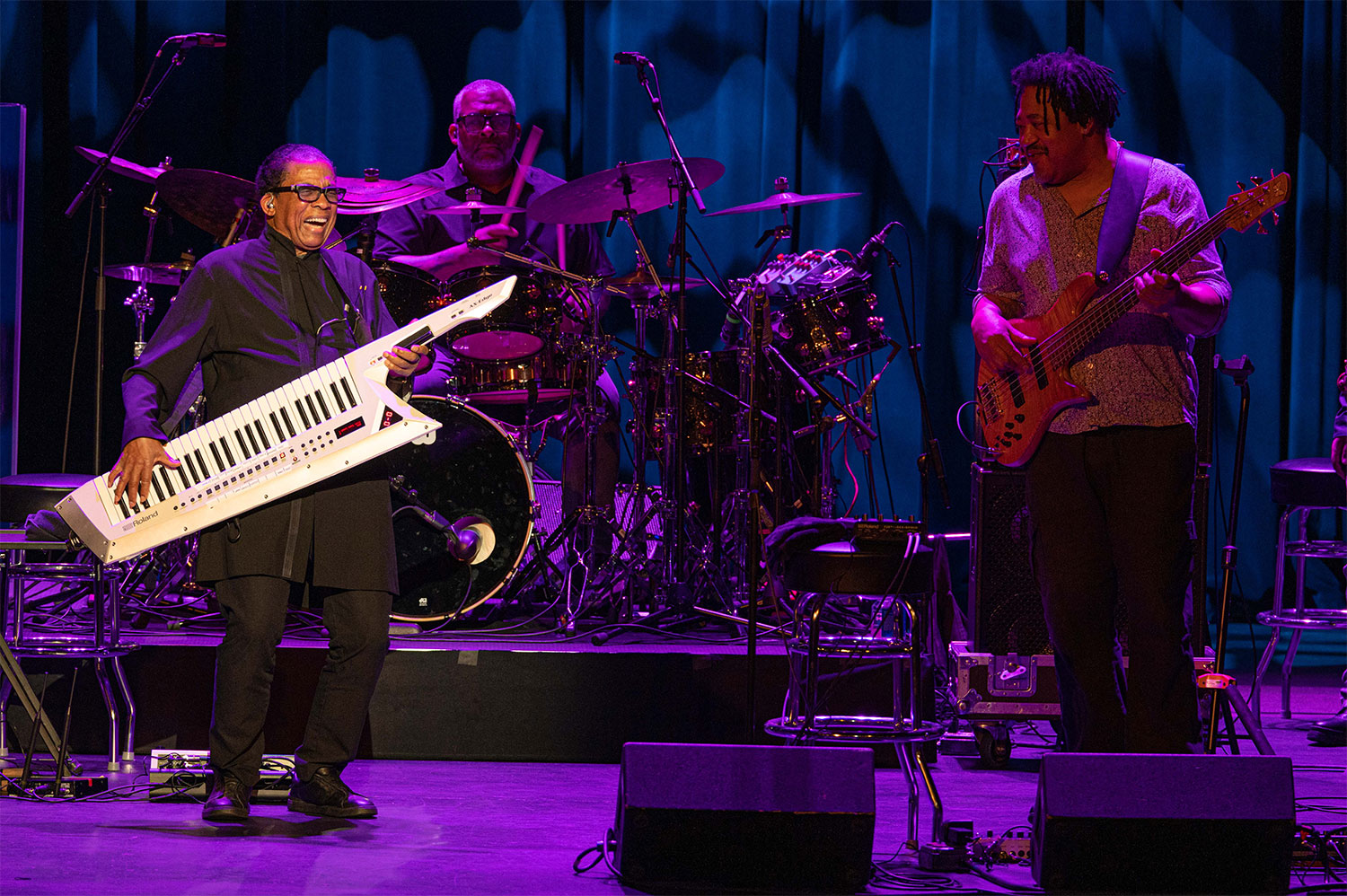
Hancock still has the chops to get serious; he just has nothing left to prove to the world, so he’s taking his role as mentor and curator of jazz history more seriously these days, putting the spotlight on his collaborators more often than himself. His presence alone is enough to carry any performance; amazingly, this rather cobbled-together band still managed to transcend Hancock’s incomparable legacy and enduring compositions. It was a rare opportunity to witness the long history and promising future of jazz collide.
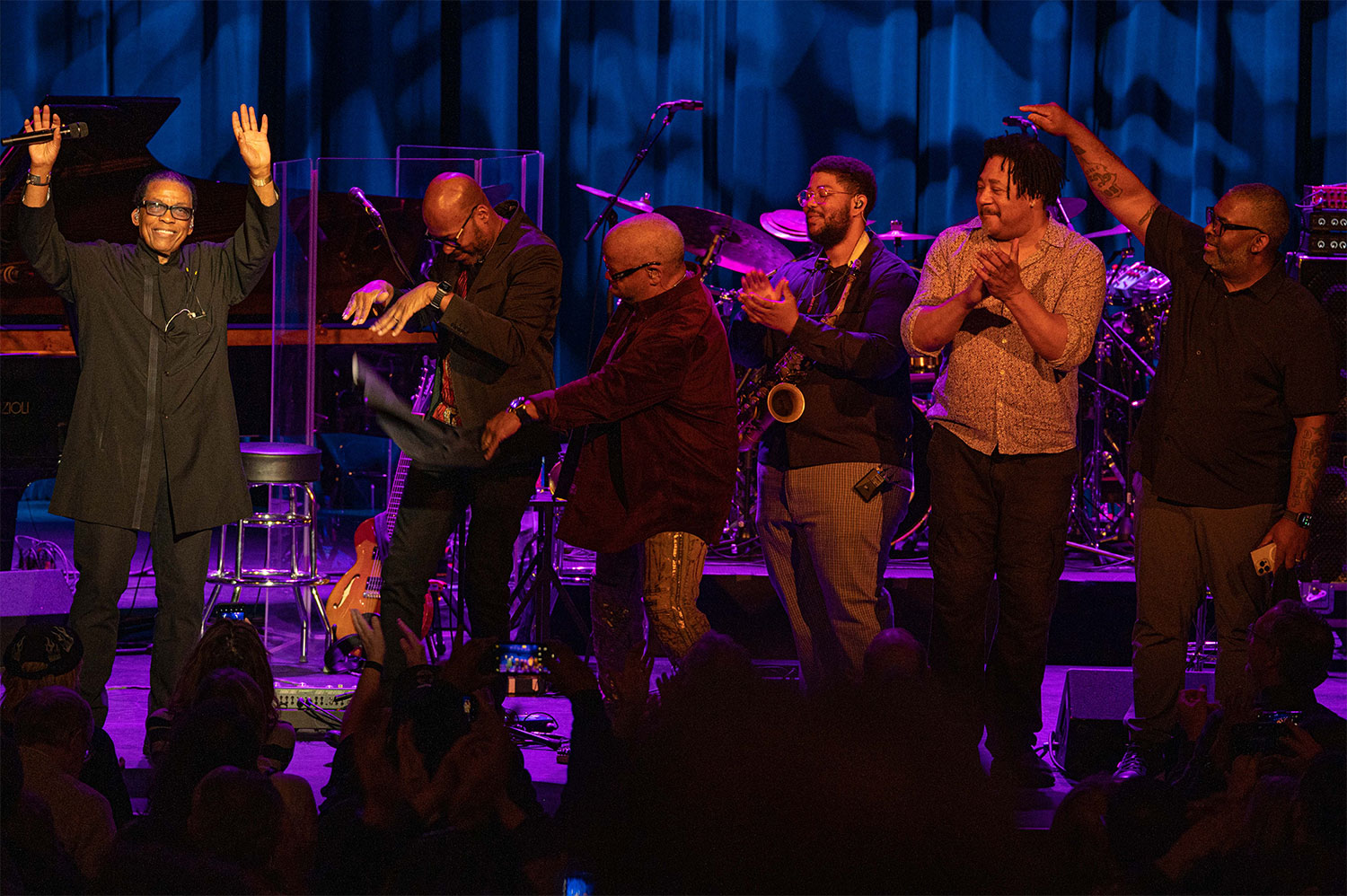
Want more Milwaukee Record? Subscribe to our free weekly newsletter and/or support us on Patreon.

